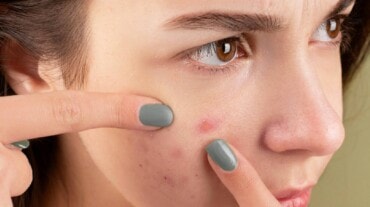Probiotics for skin: 6 Benefits and How to use it
Probiotics are not only known to promote digestion but also your skin. Here are 6 benefits of probiotics for skin which include fighting against acne and reducing signs of ageing.
Probiotics are live microorganisms known for their health benefits, particularly in maintaining gut health and strengthening the immune system against infections. These beneficial bacteria are naturally found in foods like yoghurt, kefir, and fermented foods, and they are increasingly recognised for their positive impact on skin health too. When applied topically or consumed orally, probiotics can help balance the skin’s microbiome, reducing inflammation and soothing conditions like acne, eczema, and rosacea. They promote skin hydration, improve barrier function, and even enhance skin cell turnover for a smoother, brighter complexion. Want to know more about the benefits of probiotics for skin? Read on!
Benefits of probiotics for skin
Probiotics offer multiple benefits for skin health. These include protecting the delicate skin barrier to reduce the risk of inflammatory conditions like acne, eczema, and rosacea. By maintaining a balanced microbiome, probiotics help soothe irritation and regulate the skin response to external triggers such as UV rays and pollution. They also stimulate skin cell turnover, promoting a smoother and brighter skin tone over time. In addition to their anti-ageing properties, probiotics can diminish wrinkles and fade blemishes, offering you youthful skin. Probiotics can also hydrate and nourish your skin, combating skin dryness.
Oral and topical use of probiotics can help with these 6 health conditions or diseases, according to dermatologist Dr Atula Gupta:
1. May help you deal with acne
Acne is caused by clogged pores, inflammation, and bacterial growth, often exacerbated by an imbalance in the skin’s microbiome. According to a research paper published in 2020 by Clinical and Experimental Dermatology, probiotics, especially strains like Lactobacillus and Bifidobacterium, exhibit antimicrobial properties that can help inhibit the growth of acne-causing bacteria such as Cutibacterium acnes. By reducing bacterial load and inflammation, probiotics may help in preventing and managing acne breakouts.

2. May reduce signs of ageing
As we age, the skin undergoes several changes that may result in reduced collagen production, diminished elasticity, and increased visibility of wrinkles and fine lines. Probiotics offer anti-ageing benefits by stimulating collagen synthesis and improving skin barrier function. A 2016 study published by the Journal of Drugs in Dermatology stated that using probiotics for the skin can restore skin pH balance, reduce damage caused by UV light, and lower oxidative stress. All these benefits can help reduce signs of ageing.
3. May help you deal with Atopic dermatitis
Atopic dermatitis (AD), also known as eczema, is a chronic disease that causes inflammation, itching, redness, and irritation of the skin. In this condition, the number of Staphylococcus aureus bacteria is higher. However, as per a 2017 study published by Clinical, Cosmetic, and Investigational Dermatology, topical use of probiotics can reduce the number of S. aureus and AD symptoms. Not only this, but another study published by Experimental Dermatology also revealed that applying probiotic-containing skin care products may reduce acne outbreaks and help manage dry skin and eczema.
4. May control psoriasis
Psoriasis is an autoimmune condition, in which the immune system becomes overreactive and causes rapid turnover of skin cells, leading to thick, scaly patches on the surface of the skin. These inflamed patches can be mostly seen on the scalp, elbows, and knees, however, other body parts can also be affected. While there is limited research on the positive effect of probiotics on psoriasis, in a study published by the British Journal of Dermatology, oral probiotics are effective in managing psoriasis.

5. Rosacea
Chronic inflammation, stress, shifts in skin pH, and dietary choices, among other factors, can disrupt microbial balance. This imbalance may lead to infections or skin conditions such as acne, eczema, and rosacea. Rosacea, specifically, is a chronic inflammatory skin disorder primarily affecting the face and causing redness, visible blood vessels, and sometimes pimples or bumps. Unlike acne-related redness around acne spots, rosacea typically causes flushing that occurs more commonly at the center of the face. A recent review published in Frontiers in Microbiology suggests that using probiotics could significantly alleviate rosacea symptoms.
6. Wound healing
Probiotics may also be effective in promoting wound healing by accelerating the repair process and reducing the risk of infection. Older research published by Clinical Microbiology and Infection found that using Lactobacillus plantarum probiotics can accelerate the healing of wounds, preventing infection. However, more research is needed to support this benefit.
Also read: Probiotic v/s Prebiotic: What’s the difference and which one is better
Select Topics of your interest and let us customize your feed.
Which probiotics are best for the skin?
When looking for skincare products containing probiotics, look for something with one or more of the following ingredients:
- Lactobacillus: Effective in reducing redness and acne.
- Bifidobacterium: Ideal for people with dry, irritated skin or eczema.
- Vitreoscilla: Helps maintain skin moisture levels.
- Streptococcus thermophilus: Beneficial for boosting ceramide levels, particularly for sensitive skin or eczema.
- Bacillus coagulans: Can help combat skin ageing.
- Staphylococcus epidermidis: Known for its ability to inhibit the growth of infection-causing bacteria on the skin.
How to use probiotics for skin care?
Here are 3 ways to use probiotics to improve your skin health:
1. Diet: Incorporate probiotic-rich foods such as yoghurt, kefir, sauerkraut, and kombucha into your diet to promote a healthy gut microbiome, which indirectly supports skin health.

2. Supplements: Take oral probiotic supplements containing strains beneficial for skin conditions like acne or eczema. These supplements can help balance the gut microbiome, potentially improving skin appearance and reducing skin problems.
3. Topical use: Use skincare products containing probiotics directly on the skin, such as creams, serums, masks, foundations, gels, cleansers, primers, etc. These topical treatments can help maintain the skin microbiome, support barrier function, and alleviate conditions such as acne or inflammation.
Are there any side effects of probiotics on the skin?
While probiotics generally benefit skin health, some people may experience mild side effects such as temporary redness, itching, or irritation. These reactions are usually a result of an allergy to probiotics. So, it is advisable to perform a patch test before full application and to start with lower concentrations to understand its effect on your skin.


